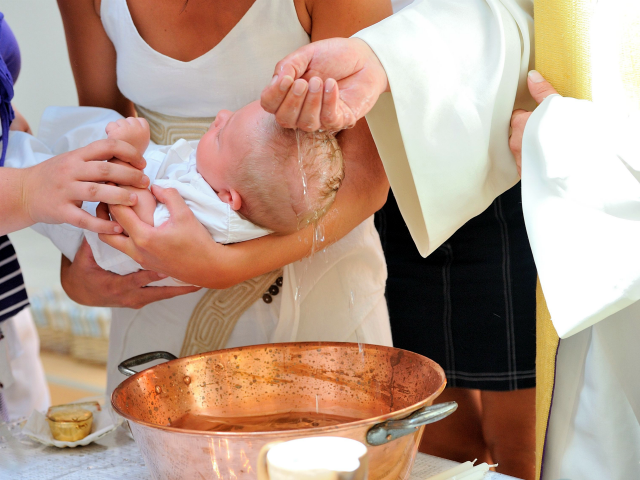ROME, Italy — The Sicilian archdiocese of Catania has abolished the role of godfather and godmother at Catholic baptisms, asserting that the institution has devolved into a method of strengthening family ties and sometimes criminal ties rather than bonds of Christian faith.
The decree of Catania Archbishop Salvatore Gristina, which has been mirrored in other Sicilian dioceses such as Mazara del Vallo, is “experimental” in nature and its results will be evaluated after three years.
The archbishop said that over time the original religious dimension of the function of godfathers and godmothers has been largely lost, having often been replaced by a mere social formality.
Although the archdiocese had come to the conclusion last spring that this measure was necessary, the decree came into effect just this past weekend, allowing time for previously scheduled baptisms with godparents to take place over the summer months.
“The plurisecular tradition of the Church holds that a godfather or godmother should accompany the person being baptized or confirmed to help him along the path of faith,” Gristina said in his decree. “It should be considered, however, that in today’s socio-ecclesial context the presence of godfathers and godmothers is often a sort of formality or social custom in which the faith dimension is barely visible.”
Moreover, “the complex and irregular family situation of so many people proposed to carry out this task makes the issue even more delicate,” he added.
According to Catholic Canon Law, a godparent or “sponsor” is not strictly required for baptism, but recommended “insofar as possible.”
The sponsor is supposed to assist “the baptized person to lead a Christian life in keeping with baptism and to fulfill faithfully the obligations inherent in it,” a job description that helps explain why certain conditions must be met.
For example, Canon Law specifies that a sponsor must “be a Catholic who has been confirmed and has already received the most holy sacrament of the Eucharist and who leads a life of faith in keeping with the function to be taken on.”
If taken seriously, this condition alone would rule out an enormous number of potential candidates.

COMMENTS
Please let us know if you're having issues with commenting.